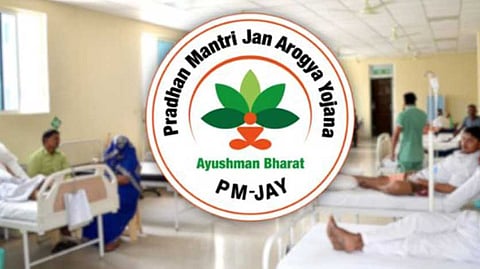

BHUBANESWAR : The All Odisha Private Medical Establishment Forum (AOPMEF) has expressed serious concerns over the technical glitches, impractical pricing structures and operational hurdles that threaten the viability of private healthcare services after implementation of Ayushman Bharat-PMJAY and Gopabandhu Jan Arogya Yojana (GJAY) scheme in the state.
In a detailed representation to Health minister Mukesh Mahaling, the AOPMEF flagged issues including package pricing, operational challenges and software or IT-related difficulties, seeking his intervention to resolve them.
The forum has demanded a minimum of 30 pc increase in package rates over the previous scheme BSKY, stating that the current pricing fails to account for inflation and is financially unsustainable.
The private establishments pointed out that high-cost procedures like cardiotocography (CTG) for lower segment cesarean section (LSCS) have been capped under low-value package (Rs 15,000), making it unfeasible which will compromise service quality.
AOPMEF secretary Dr Indramani Jena urged for a revision in implant pricing and a return to editable options. Currently, implant packages like pacemakers are capped at Rs 75,000, and spine implants at Rs 10,000, which he claimed are unsustainable. “Such rigid pricing structures would directly impact the quality of treatment, especially in critical surgeries. Advanced diagnostics like CT, MRI, PFT, NCV, EMG and FeNO, which are missing, must be included,” he said.
Operationally, the hospitals reported disruptive changes in workflow due to round-the-clock Aadhaar-based OTP authentication by medical superintendents, which is completely impractical.
The forum suggested delegating certain responsibilities to medical coordinators (Medcos) to improve efficiency.
The private hospitals sought relaxation of new discharge requirements including the mandatory submission of medical slips and photographs with patients - practices they said are logistically difficult and administratively taxing. “Software-related issues further compound the challenges.
Lack of realtime card verification, balance-check features, and extremely slow software during peak hours compound the problems. Documents often disappear within seconds post-upload, causing repeated work and potential errors,” said forum president Dr Subrat Jena.
Another major concern remains the centralised management of the scheme. AOPMEF argued that since healthcare is a state subject, local officials should be empowered to resolve operational and payment-related issues instead of relying solely on directives from central authorities.